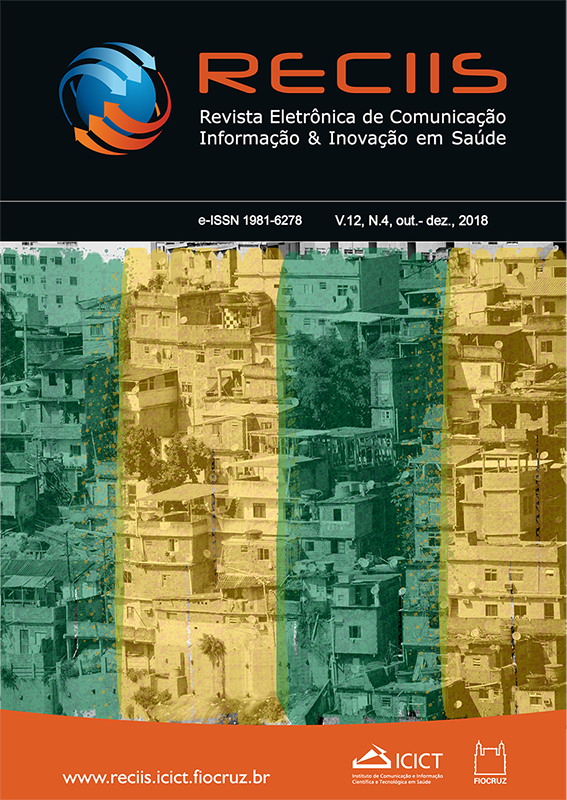Analysis of the patent applications for insulin in Brazil
DOI:
https://doi.org/10.29397/reciis.v12i4.1328Keywords:
Drug, Biotechnology, Insulin, Patent, Mapping.Abstract
Among the biotechnological drugs, insulin plays an extremely significant role because it occupies the world rank of most commercialized drugs and, in Brazil, it is the pharmaceutical input that generates more expenses with importation. Insulin is one of the main medicines used for diabetes, the disease that affects 415 million people and consumes 12% of the world’s health expenses. This study examines the present classification of patent applications for insulin in Brazil. The search for patent documents was carried out using an Orbit Intelligence® database. The results show an absence in Brazil of national industries innovating by means of patents in the biotechnology area, becoming it dependent on external market, which can result in a national insulin shortage supply. Taking account the three countries studied, only the United States of America has a number of patents for insulin that demonstrates progress and investment in research and development. It is necessary to increase investment in R&D and public policy-making encouraging innovation of the studies in the biotechnology area in Brazil.
Downloads
Published
How to Cite
Issue
Section
License
Author’s rights: The author retains unrestricted rights over his work.
Rights to reuse: Reciis adopts the Creative Commons License, CC BY-NC non-commercial attribution according to the Policy on Open Access to Knowledge by Oswaldo Cruz Foundation. With this license, access, download, copy, print, share, reuse, and distribution of articles is allowed, provided that it is for non-commercial use and with source citation, granting proper authorship credits and reference to Reciis. In such cases, no permission is required from the authors or editors.
Rights of authors’s deposit / self-archiving: The authors are encouraged to deposit the published version, along with the link of their article in Reciis, in institutional repositories.












